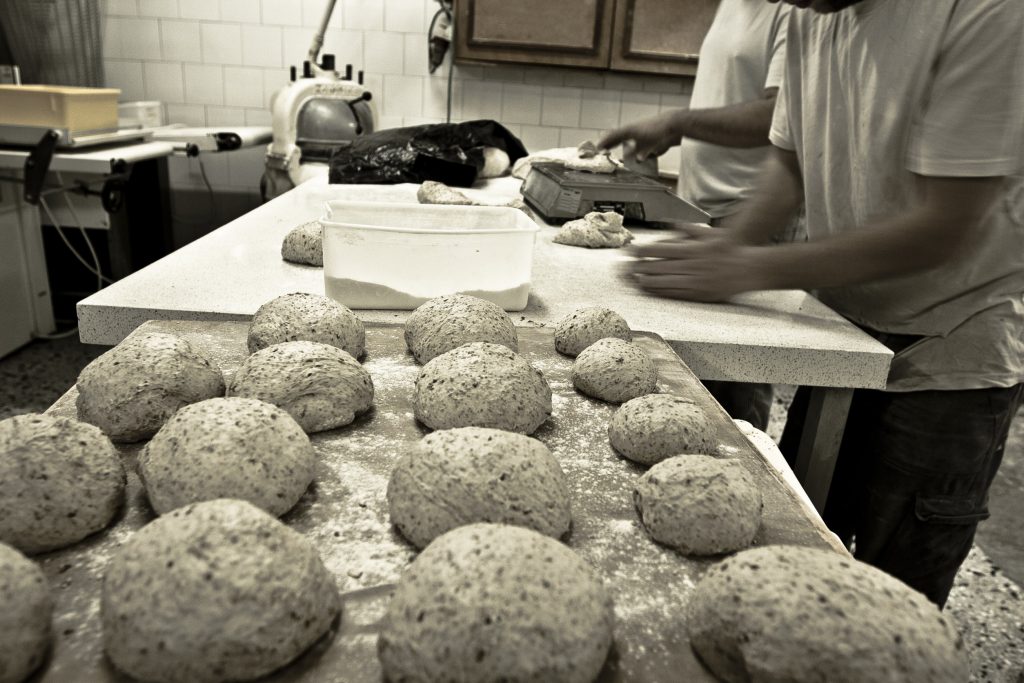
The amount of surplus bread measured for the first time in Italy by LOWINFOOD
Researchers from four LOWINFOOD consortium organisations have recently published a paper in the Waste Management journal, where they offer an economic assessment of surplus bread in Italian small-scale bakeries. On average, 4.83 kg of surplus bread was produced daily per bakery, representing 5.44 % of the daily turnover.
Researchers define surplus bread as bread baked and put on sale directly in the bakery (or delivered to a bakery branch) but for various reasons not sold to a customer at the end of the day. However, it can still be used for human consumption (i.e. donated or re-used as breadcrumbs), but cannot be sold as “fresh bread”. Surplus bread does not necessarily become waste, because it can be diverted to other uses. Knowledge of the quantities involved and their economic value is essential in developing possible strategies and actions to reduce its amounts as much as possible, at the business or policy level, to prevent it from becoming waste, since surplus bread is likely to become waste if no management options are implemented.
It is the first quantification of surplus bread at bakeries with direct measurement made in Italy. LOWINFOOD partners from the University of Tuscia (Italy), the Swedish University of Agricultural Sciences (Sweden), the Institute of Sustainable Nutrition (Germany), and the Italian Confederation of Craft Trades and Small- and Medium-Sized Enterprises (CNA) have worked together with a panel of 12 bakeries and their branches located in the Lazio region, which compiled a daily diary of the bread they produced, sold and the surplus that was generated for five months. The bakeries participating in the study are small-scale bakeries, “which reflect the typical structure of the Italian businesses in the bakery sector, producing fresh bread and selling it directly to consumers,” stated researchers.
The surplus amounts reported in this study are lower than the values quantified, for example, in Sweden and Germany, where take-back agreements are common. This indicates that there is a different approach to bread in Italy, leading to better matching of supply and demand. In fact, take-back agreements are reported to be one of the main causes of bread losses and waste, but none of the bakeries involved in this study reported using this practice. It became much less frequent in Italy after the implementation of EU Directive 2019/633 in April 2019, which categorised take-back agreements as a potentially unfair trading practice.
For small-scale bakeries in particular, preventing the generation of surplus bread has significant economic implications. These bakeries typically have a small margin of revenue and their business is already at high risk due to increasing costs of ingredients (especially flour) and of energy. Prevention and redistribution should be considered the most desirable options for surplus bread, while alternative destinations for surplus products should only be used when prevention is not possible. Dialogue among stakeholders, especially at the local level, is crucial to achieving a zero- or low-waste bakery value chain. Through dialogue, different actors could share their know-how to successfully match the production and sales of bakery products and better understand customers and their demands.
Share on Facebook Share on Twitter Share on Pinterest